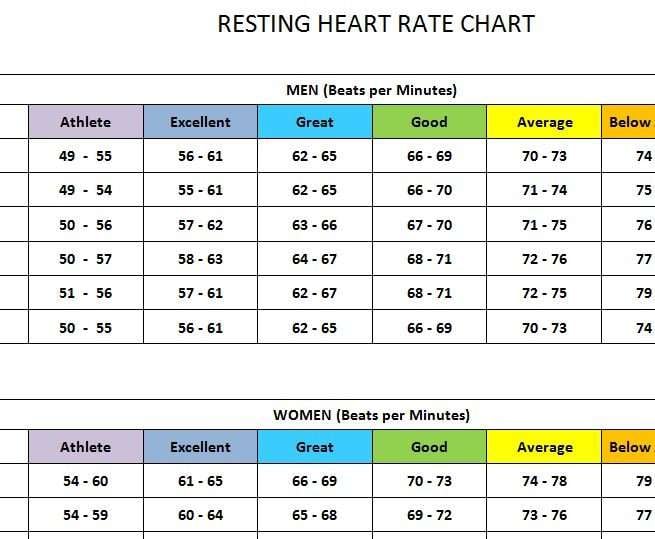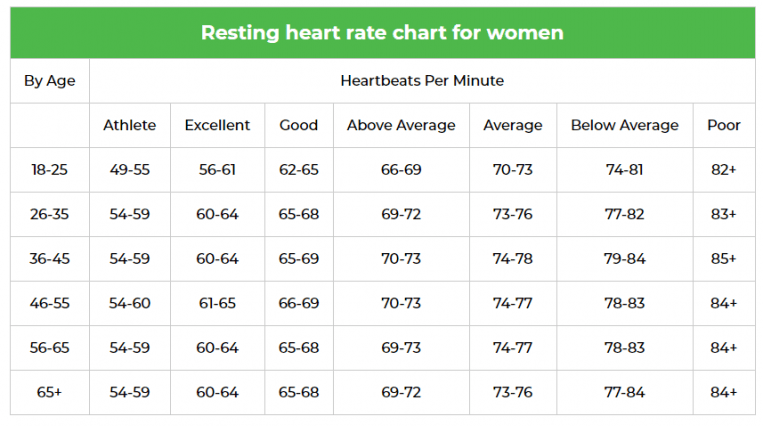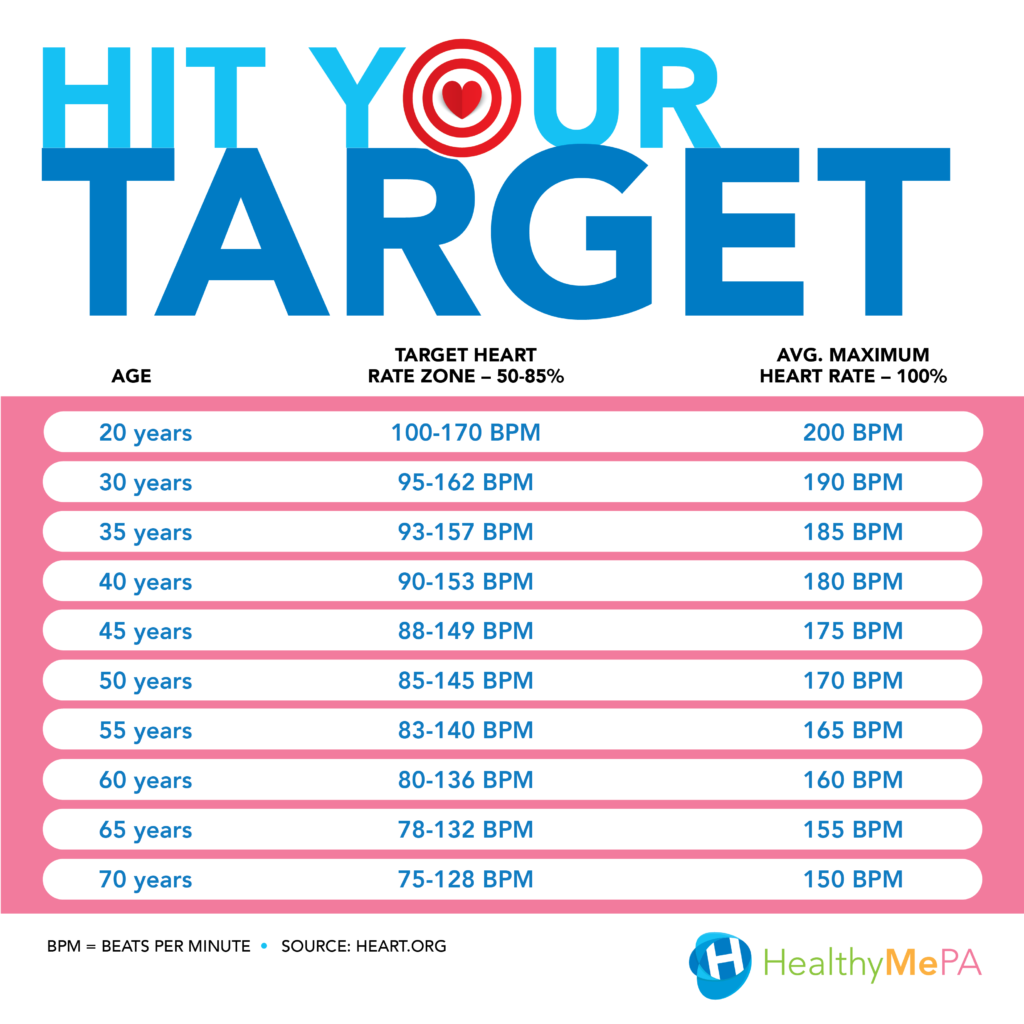Keep Your Doctor Informed Of Your Resting Heart Rate
This article is not meant to diagnose or treat you. Its intended to help you understand one aspect of your health, your resting heart rate. This article is based on scientific research, but science is continually changing. Thus, this information is subject to change.
Everyone is different and has unique circumstances. Consult with your doctor about any changes in your health, diet, and exercise.
Read my full medical disclaimer here.
Clinical Contributors To This Story
Sarah L. Timmapuri, M.D. contributes to topics such as Cardiac / Heart Health, Exercise / Fitness.
If your heart is racing as youre sitting reading this article, its possible your body is trying to tell you something. A high resting heart rate, or a heart rate of more than 100 beats per minute, means your heart is working extra hard to pump blood through your body. And, that extra effort could result in a wide range of negative effects on your overall health, including feelings of dizziness and fatigue and most seriously blood clots, heart failure and, in rare cases, sudden death.
Normal resting heart rate is anywhere between 60 and 100 beats per minute, and its simple to check how fast yours is beating. While idle, hold your pointer and middle finger between your bone and tendon on the thumb side on your wrist until you feel your pulse, and count the number of beats for a minute that is your resting heart rate.
Certain aspects of someones resting heart rate are directly connected to uncontrollable factors, such as age and genetics, however there are certain actions that be taken to help decrease heart rate and improve overall wellbeing for those whose resting heart rate is above normal.
Here are six proven ways to lower your resting heart rate:
Why Did People With A Naturally Slow Heart Rate Live The Longest
While most people would never guess that those with the slowest resting heart rates live the longest,this studyis just one ofmany studiesshowing that a slow resting heart rate is protective. Before you get too excited or worried, depending on your own resting heart rate, I need to point out that this was just an observational study.
There is no conclusive proof that a slow resting heart rate will make you live longer. In fact, a slow resting heart rate may have nothing at all to do with survival. Any survival advantage from a slow resting heart rate may be do to regular daily exercise or other factors. In other words, a slow resting heart rate may just be a sign of someone who exercises regularly.
You May Like: How To Calculate Resting Heart Rate
How To Measure Your Heart Rate
The best time to measure your pulse is in the morning, before you get out of bed and before you’ve had your morning coffee or tea.
You can check your heart rate at your wrist. Lightly place your second and third fingers of one hand on the inside of your other wrist, below the base of your thumb. You should feel your pulse under your fingertips. Count the number of beats in one minute. Repeat to make sure you get a consistent reading.
Benefits Of Sleep For Heart Health

According to the Centers for Disease Control and Prevention , getting enough sleep is very important for heart health. During sleep, both your heart rate and your blood pressure go down. Most adults need at least seven hours of sleep to allow the body to rest and repair.
The CDC says that lack of sleep may raise your risk for heart disease, heart attack and stroke. Lack of sleep is also linked to health problems, such as type 2 diabetes and obesity, which can contribute to heart disease.
Read Also: Does Acid Reflux Cause Heart Palpitations
How Much Should Your Heart Rate Fluctuates While Sitting
Heart Rates Can Vary by as Much as 70 Bpm: What That Means for Your Health. Researchers found that daily resting heart rates differed between individuals by as much as 70 beats per minute . Most men had a daily resting rate between 50 and 80 bpm, while most women had a daily resting rate between 53 and 82 bpm.
Your Resting Heart Rate
When you are at rest, your heart is pumping the lowest amount of blood to supply the oxygen your body’s needs. For most healthy adult women and men, resting heart rates range from 60 to 100 beats per minute. However, a 2010 report from the Women’s Health Initiative indicated that a resting heart rate at the low end of that spectrum may offer some protection against heart attacks. When WHI researchers examined data on 129,135 postmenopausal women, they found that those with the highest resting heart ratesmore than 76 beats per minutewere 26% more likely to have a heart attack or die from one than those with the lowest resting heart rates62 beats per minute or less. If your resting heart rate is consistently above 80 beats per minute, you might want to talk to your doctor about how your heart rate and other personal factors influence your risk for cardiovascular disease.
Also Check: Fitbit Charge 2 Heart Rate Accuracy
What Your Resting Heart Rate Says About You
If you want to know more about your cardiovascular health, weve got one big question for you: Do you know what your resting heart rate is?;
Your resting heart rate can tell you a lot about your cardiovascular health and while some of what it says may seem scary at first, dont worry! There are ways to improve your cardiovascular health. At Tri-City Medical Center, we see patients with high resting heart rates lower theirs to healthier levels all the time.
Heres a little background on just what your heart might be trying to tell you.
What Does This Tool Help You Learn
This tool will help you find your target heart rate based on your age, resting heart rate, and activity level. Your target heart rate can guide you to how hard you should exercise so you can get the most aerobic benefit from your workout.
Do not use this target heart rate measurement if you are taking medicine that affects your heart rate, such as beta-blockers, calcium channel blockers, or digoxin. Talk to your doctor before you start an exercise program.
Also Check: How Accurate Is Fitbit Charge 2 Heart Rate
How To Take Your Heart Rate
You can measure your heart rate by finding your pulse. The pulsating rhythm of your bloodyour pulsematches the movements of your heart and indicates your heart rate. Using your middle and index finger, press firmly in an area of your body that has a pulse. One of the most common places to take your pulse is on the inside of your wrist. Other body parts that reveal your pulse include:
- The side of your neck
- The pit opposite your elbow
- The base of your toe
Once you locate your pulse, using a stopwatch, begin counting each beat for 60 seconds. Alternatively, you can count the beats for 15 seconds and multiply your results by 4. This measurement indicates your approximate resting heart rate.
How Other Factors Affect Heart Rate
- Air temperature: When temperatures soar, the heart pumps a little more blood, so your pulse rate may increase, but usually no more than five to 10 beats a minute.
- Body position: Resting, sitting or standing, your pulse is usually the same. Sometimes as you stand for the first 15 to 20 seconds, your pulse may go up a little bit, but after a couple of minutes it should settle down.
- Emotions: If youre stressed, anxious or extraordinarily happy or sad your emotions can raise your pulse.;
- Body size: Body size usually doesnt change pulse. If youre very obese, you might see a higher resting pulse than normal, but usually not more than 100.;
- Medication use: Meds that block your adrenaline tend to slow your pulse, while too much;thyroid medication or too high of a dosage will raise it.
Recommended Reading: Acetaminophen Heart Rate
How Healthy Is Your Resting Heart Rate
Learn whats normal, whats not, and what could be throwing your resting heart rate out of whack.
Pulse taking is an ancient technique, dating back thousands of years, but these days you’d almost never know it. Long gone are the days of placing two fingers against your neck while watching the clock. Now,;measuring your resting heart rate;is as easy as firing up a smartphone app or saying, “Siri, what’s my heart rate?“;
The ease at which you can detect your resting heart rate — and track it over time — has led to a sort of heart-rate renaissance among non-medical professionals, with everyone from health nuts to;fitness fanatics trying to use it to their advantage. But the wealth of resting heart rate data available literally at your fingertips doesn’t mean anything if you don’t know how to interpret it.;
Below, a primer that will help get you up to speed before you next doctor’s appointment.;
Read more:;The best iPhone and Apple Watch health devices for checking blood pressure, heart rate and more;| This might be the number-one way to track your fitness
Estimated Target Heart Rates

This table shows estimated target normal heart rates for different ages. Your maximum heart rate is about 220 minus your age.
In the age category closest to yours, read across to find your target heart rate. Heart rate during moderately intense activities is about 50-69 percent of your maximum heart rate, whereas heart rate during hard physical activity is about 70 percent to less than 90 percent of the maximum heart rate.
The figures are averages, so use them as general guidelines.
» Learn how to use a heart rate monitor while youre exercising.Table provided by the American Heart Association
Read Also: Does Acid Reflux Cause Heart Palpitations
What Does Hot Lemon Water Do
The vitamin C in lemons can help alleviate stress and fight viral infections and sore throats. Potassium is beneficial to heart health, as well as brain and nerve function. . Reduces inflammation and cleanses the system Drinking lemon water regularly decreases acidity in your body and removes uric acid from joints.
Check Your Resting Heart Rate Early And Often
Dr. Wasfy recommends checking your resting heart rate a few times per week and at different times of the day. Keep in mind that the number can be influenced by many factors, including stress and anxiety, circulating hormones, and medications such as certain antidepressants and some blood pressure drugs.
Talk with your doctor if your resting heart rate is regularly on the high end. There are ways to lower it and keep it within its proper range. One example is keeping your cholesterol levels in check. High levels restrict blood flow through the arteries and damage blood vessels, which can make your heart beat faster than normal to move blood through the body.
Another reliable way to lower your resting heart rate is to exercise. “Even small amounts of exercise can make a change,” says Dr. Wasfy. However, the intensity of the exercise is key.;One study;that involved 55-year-old adults found that just one hour per week of high-intensity aerobic training lowered RHR more efficiently than a low-intensity effort .
Tips for measuring your resting heart rate
|
Don’t Miss: Reflux And Palpitations
How Low Is Too Low For A Resting Heart Rate
Generally speaking, a persons resting heart rate is normal if its between 60 and 100 beats per minute, says Dr. Brian Mikolasko of Brigham and Womens Hospital in Boston. There are a ton of different factors that play into what it is for each individual, from fitness level to age and environment.
The standard resting heart rate window actually varies the most in young children. Up to 1 month, heart rate ranges from 70 to 190 beats per minute. The upper limit of that range declines slowly until age 9, when the range is sits between 70 and 110 beats per minute. From 10 years old and beyond, the window sits constant between 60 and 100 beats per minute.
Whereas a resting heart rate of 42 or even 38 beats per minute can be typical for a well-trained endurance runner or triathlete, that would be pretty low for someone who is a casual exerciser. Best measured before you start moving around first thing in the morning, a resting heart rate is much different than what youll see during exercise.
Because the normal range of a resting heart rate is between 60 to 100 bpm, a resting heart rate under 60 beats per minute is considered slow, often referred to as bradycardia.
It is not unusual for healthy people involved in endurance activities to develop a bradycardia based on the increased vagal tone from training that suppresses heart rate, says William O. Roberts, M.D., a professor in the Department of Family Medicine and Community Health at the University of Minnesota.
What Your Heart Rate Says About Your Cardiovascular Health
Your heart is responsible for pumping blood and oxygen throughout your body and if youre having heart troubles, the rest of your body will be impacted too.
A higher resting heart rate can be dangerous because it taxes the heart, making it work harder. This is linked to a higher risk of heart disease and death, just like high blood pressure or high cholesterol. Resting heart rates that near or exceed 100 should be brought to the attention of your doctor.
Recommended Reading: How To Calculate Target Heart Rate Zone
What Is A Good Heart Rate For My Age
A good heart rate differs from individual to individual, and it depends upon your age and the kind of physical work you do.
Given below is the chart showing normal heart rates by age.
Heart Rate by Age Range
| Approximate Age Range | |
| 15 years or older | 60-100 |
However, a heart rate that is lower than 60 per minute does not necessarily mean that it is abnormal. If you are an athlete or someone who is engaged in moderate to vigorous physical activity, you may have your heart rate between 40 and 60 per minute.
Lowering Your Heart Rate
There are several ways you can do this to help your heart stay healthy:
Exercise. Physical activity strengths your heart just like other muscles in your body. It trains your heart to be more efficient so it doesnât work as hard when youâre at rest. A walk, bicycle ride, or yoga class can all help.
Quit smoking.Smoking causes your arteries and veins to get smaller. This can lead to a higher heart rate. Nixing tobacco products can bring your pulse down to a healthier level.
Relax.Stress can send hormones like adrenaline and cortisol racing through your blood, which can raise your heart rate. Things like meditation and yoga can help lower stress levels. Over the long term, they can lower your resting heart rate, too.
Eat more fish. A healthy diet is the cornerstone of heart health. In addition to fruits and vegetables, which are rich in vitamins and minerals, add fish to your menu. Eating it regularly can help lower your heart rate.
Also Check: How Do You Calculate Max Heart Rate
Resting Heart Rate The Daily Variation
Introduction
Many wearables like the Fitbit Charge and other wearables provide heartrate tracking. However, it is hard to comprehend 24 hours of HR-data. Therefore, many of these trackers only provide you with feedback on;your resting heartrate. Jawbone up 4, Fitbit Charge 2, Beddit, Emfit and other healthtrackers, like; Mybasis B1 use this tactic. Resting heart rate is a well know healthfactor, but whats it worth?;;A study among 2798 males showed that a lower resting heart rate is related to a higher degree of physical fitness . On the other side, an increasing RHR was highly associated with mortality in a graded manner after adjusting for physical fitness, leisure-time physical activity and other cardiovascular risk factors. With every 10 beats per minute increase for RHR, risk of mortality increased with 16%. Thus, it seems that RHR is quite important for health. However, my RHR varies over the days. And it does for everyone. Everyone who has a HR-tracker knows that. This changing RHR might have important implications for our health. But how come does it vary over the days? To find out the reasons why my resting heart rate varies, I am going to analyze which factors of my life influence my resting heart rate the next morning.
Methods
| Factor |
Results
High resting heart ratesOn the other hand, I had also very high resting heart rates with a high-score of 78 bpm. The cases where my heart rate was higher than 60 bpm , I was ill, or close to being ill.
Discussion
What Is A Normal Exercising Heart Rate

To determine what a normal exercising heart rate is, you first need to determine your age-predicted maximal heart rate. Here is the generalized equation for predicting maximal heart rate in healthy adults:
HRmax = 208
For example, a 20-year-old person, the age-predicted maximal heart rate would be 194 beats per minute and for a 65-year-old person, the age-predicted maximal heart rate would be 163 beats per minute. A simplified age-predicted maximal heart rate equation is commonly used, but it overestimates maximal heart rate in young adults and increasingly underestimates the maximal heart rate in older adults.
Read Also: How Much Blood Does The Heart Pump
